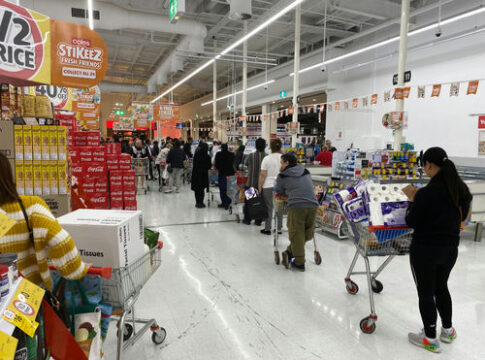Brazilian authorities confirmed eleven methanol poisoning cases and one death from adulterated alcohol in São Paulo, causing widespread panic as citizens abandon drinking altogether to avoid becoming the next victims.
Toxic Alcohol Crisis Grips São Paulo
Brazilian health authorities confirmed on October 4, 2025, that methanol-contaminated alcoholic beverages have caused eleven poisoning cases and one death in São Paulo. Seven additional suspected cases remain under active investigation. The outbreak represents one of Brazil’s most significant methanol poisoning incidents in recent years, with nearly all cases concentrated in the country’s most populous state. Health officials issued urgent public warnings about the dangers of consuming unregulated alcoholic products from informal vendors.
Methanol, a toxic industrial alcohol, costs significantly less than ethanol, making it attractive to illicit producers seeking higher profit margins. When consumed, methanol breaks down into formaldehyde and formic acid, causing blindness, organ failure, and death. The substance has been illegally used to adulterate alcoholic beverages worldwide, particularly in regions with weak regulatory oversight or during economic hardship periods when demand for cheap alcohol increases.
Public Abandons Alcohol Consumption
The poisoning outbreak triggered immediate behavioral changes across São Paulo’s population, with many citizens completely avoiding alcohol consumption. Friday night activities at bars near Paulista Avenue, one of São Paulo’s busiest entertainment districts, showed dramatically reduced alcohol sales as patrons expressed safety concerns. Restaurant and bar owners reported significant drops in beverage sales as customers opted for non-alcoholic alternatives or avoided establishments entirely. This immediate response demonstrates the public’s lack of confidence in current safety measures protecting consumers from adulterated products.
The fear extends beyond São Paulo’s borders as news of the outbreak spreads throughout Brazil. Social media amplified concerns about alcohol safety, with citizens sharing warnings about purchasing beverages from unverified sources. This crisis particularly impacts lower-income communities where informal alcohol sales are common and regulatory oversight remains limited. The economic implications affect both legitimate businesses and informal vendors as consumer trust erodes across the entire alcohol market.
Regulatory Failures Enable Dangerous Trade
Brazil’s informal alcohol market operates largely outside government oversight, creating opportunities for dangerous adulteration practices. Economic pressures and insufficient inspection protocols contribute to an environment where illicit producers can introduce toxic substances into the supply chain. Law enforcement agencies announced intensified inspections and raids targeting informal vendors following the outbreak. However, the incident reveals systemic weaknesses in Brazil’s alcohol regulation and enforcement capabilities that allow such dangerous products to reach consumers.
The outbreak highlights broader concerns about government regulatory effectiveness in protecting public health. While formal alcohol producers face strict quality controls and regular inspections, informal markets remain largely unmonitored. This two-tiered system creates dangerous gaps where consumers, particularly those seeking affordable options, become vulnerable to life-threatening products. The crisis demands immediate regulatory reforms and enhanced enforcement mechanisms to prevent future incidents and restore public confidence in beverage safety standards.


